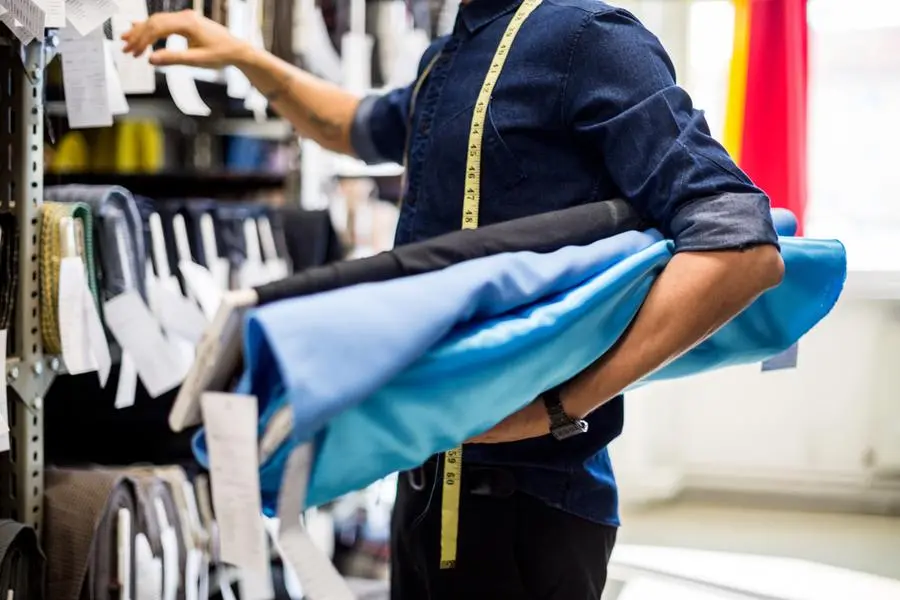PHOTO
- As part of its commitment to embracing more sustainable business models, Chalhoub Group’s circularity report provides deep insights into the regional consumer’s attitudes, behaviours, and motivations in circular fashion.
- Estimated at USD480-500 million in 2022, the GCC luxury re-commerce market is expected to grow at an annual rate of 10%-15%, reaching USD760 – 780 million by 2026.
- One third of GCC consumers already purchasing pre-loved items; an additional third planning to do so.
- In response to the growing demand for ethical consumption, over the past few years, Chalhoub Group expanded its efforts in circular economy while paving the way to Net Zero Commitment as a Group.
United Arab Emirates, Dubai: Chalhoub Group today published its comprehensive circularity report, entitled ‘Circular Fashion Potential in the GCC’. The report is the first of its kind in the region and delves into the evolving landscape of circular fashion while highlighting consumer behaviours as well as the potential and growing trends within the luxury re-commerce sector in the GCC.
The report is part of Chalhoub Group’s efforts to integrate Environmental, Social, and Governance (ESG) principles into its business model and target to achieve Net Zero by 2040. The research reveals key regional insights while highlighting the transformative shift in the convergence of sustainability with luxury, leading to the evolvement of consumer choices and industry norms.
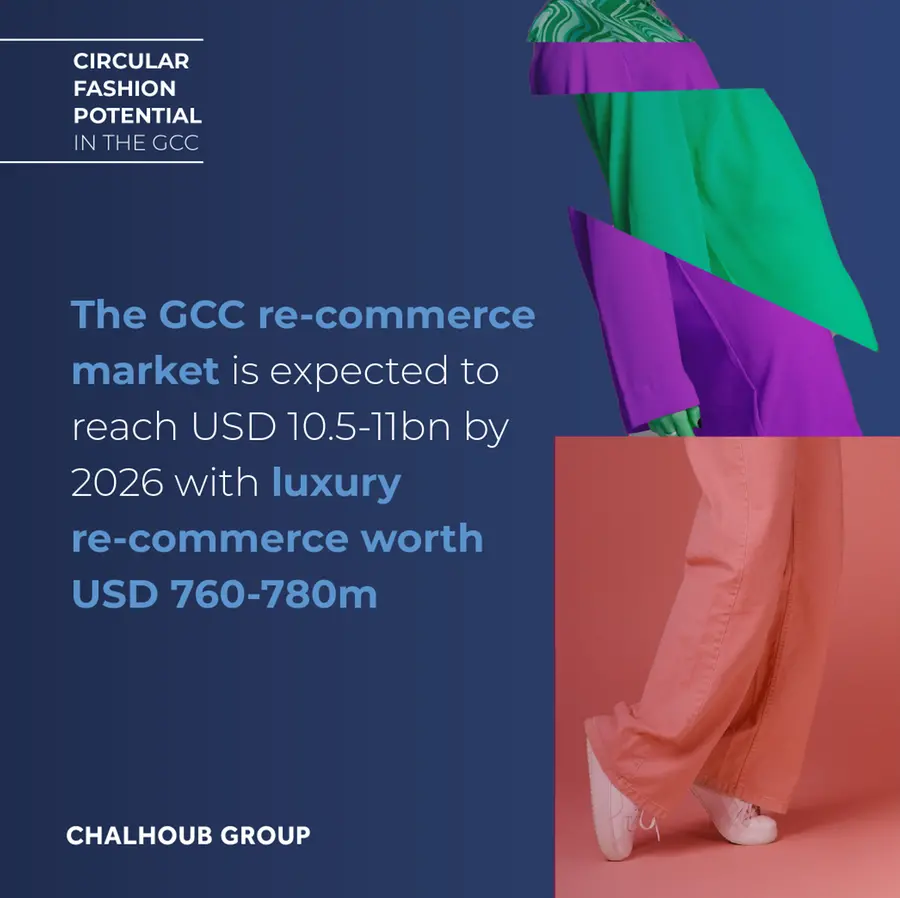

Estimated at USD480-500 million in 2022, the GCC luxury re-commerce market is expected to grow at a compound annual growth rate (CAGR) of 10% to 15%, reaching USD 760-780 million by 2026. The largest luxury segment in value is watches (accounting for about 50% of the market size), followed by jewellery (16%), handbags (13%), apparel (12%), and footwear (10%).
Consumers show a significant shift towards circularity along all price levels, with one-third of GCC consumers having already purchased pre-loved items, and another third planning to do so. The most sought-after categories that consumers purchased in the past 12 months, include bags (20%), watches (18%), and jewellery (16%). The driving factors behind these purchases lead with affordability (43%), followed by investment potential (42%), and access to limited editions (40%). Additionally, 70% of consumers stated having resold items in the past year, mainly to make money (42%) and finance new purchases (41%).
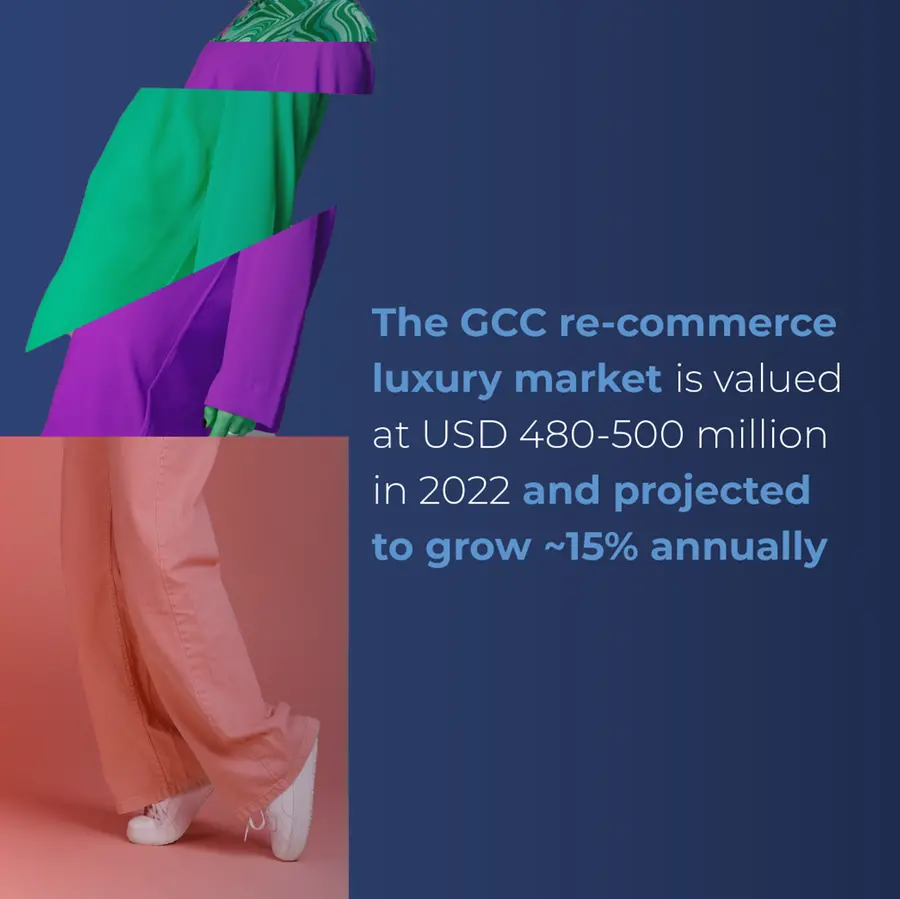

In terms of purchasing channels, online and offline prove to be almost equally important, with 58% mainly online purchasers. For clothes, shoes, and bags, peer-to peer platforms are amongst the top channels of choice, while specialist retailers are chosen for watches. When it comes to non-purchasers, concerns about authenticity (39%) and item conditions (39%) represent the top two key barriers to buying pre-loved items. Furthermore, GCC consumers seem more inclined to re-sell than to purchase pre-loved items (31%). Three out of four respondents revealed that they have re-sold fashion items in the last year, and a similar number, 73%, consider the re-sale value before purchasing a luxury item.
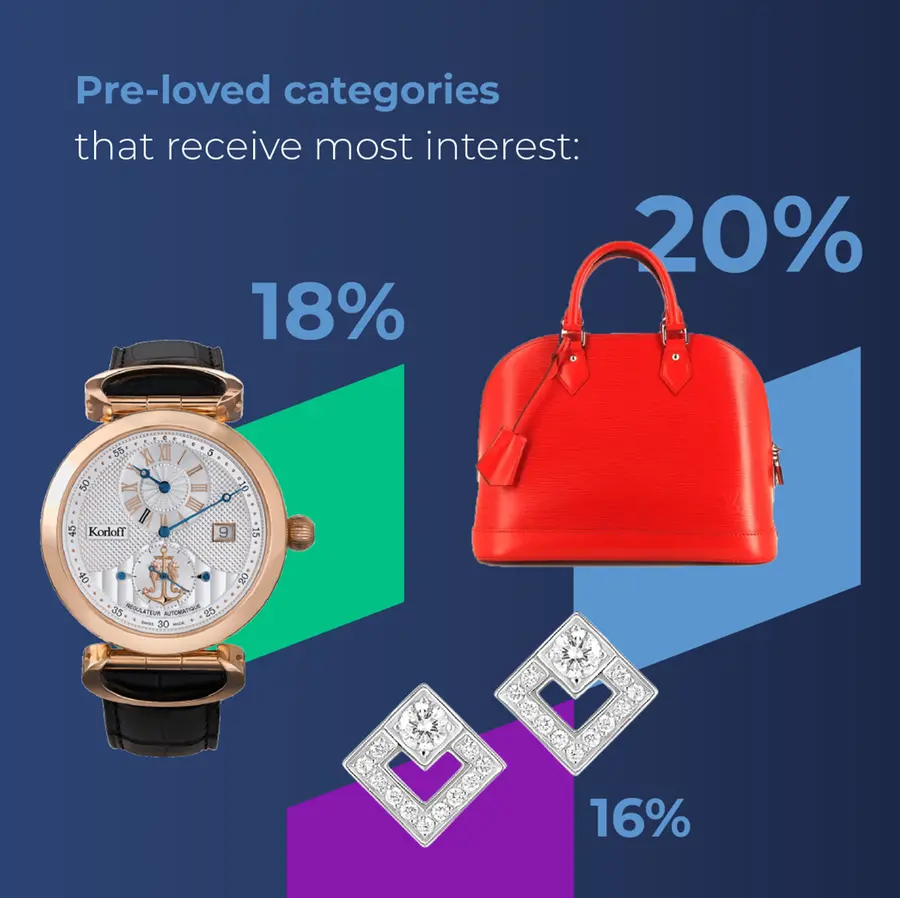

Patrick Chalhoub, Group President at Chalhoub Group said: “Sustainability remains at the heart of our operations and our Circularity Report is more than an analysis; it reflects our ongoing commitments to embracing more sustainable business models as we aim for our Net Zero target by 2040. We will continue to stress the importance of alignment among policy makers, regulators, brands, retailers, and customers as we keep our focus at the initiative level driven by interested brands and consumer affinity.”
Florence Bulte, Chief Sustainability Officer commented: “Our comprehensive research spanning the entire GCC region underscores the importance of circularity in the fashion sector, an industry which accounts for approximately 10% of global CO2 emissions. By embracing sustainable business models and focusing on circular initiatives, we are responding to the increasing consumer demand, paving the way to Net Zero and actively embedding sustainability into the core of our business.”
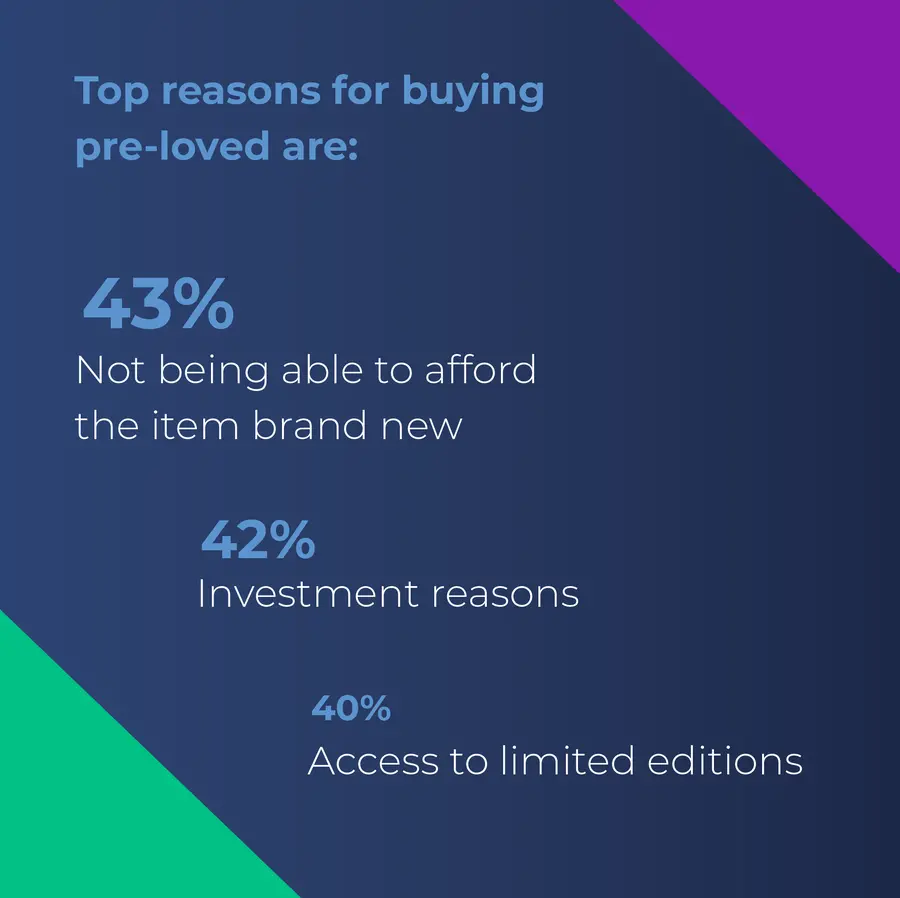

Andrea Fetzer, Strategy Director commented: “The report highlights the dynamics of the GCC re-commerce luxury market, valued at USD480-500 million in 2022 and projected to grow ~15% annually. This growth reflects evolving consumer behavior and an increasing adoption of circular business models by luxury brands and retailers globally. This is the first report of this kind done in the Middle East, leveraging desk research and data from publicly available sources, but also 15 interviews with key players in the ecosystem, along with a proprietary survey of 1,300 consumers across the GCC. At Chalhoub, we will leverage these insights to make informed business decisions, particularly in our experimentation with new business models for our brands, and to fortify our investment strategy.”
To read Chalhoub Group’s full circularity report, click on the following link: https://chalhoub.me/CircularityReport2023 .
ABOUT CHALHOUB GROUP
INSPIRE | EXHILARATE | DELIGHT
For over six decades, Chalhoub Group has been a partner and creator of luxury experiences in the Middle East. The Group, in its endeavour to excel as a hybrid retailer, has reinforced its distribution and marketing services with a portfolio of eight owned brands and over 300 international brands in the luxury, beauty, fashion, and art de vivre categories. More recently, the Group expanded its expertise into new categories of luxury watches, jewellery, and eyewear.
Every step at Chalhoub Group is taken with the customer at heart. Be it constantly reinventing itself or focusing on innovation to provide luxury experiences at over 750+ experiential retail stores, online and through mobile apps, each touch point leads to delighting the customer.
Today, Chalhoub Group stands for 15,000 skilled and talented professionals across eight countries, whose cohesive efforts have resulted in the Group being certified as a Great Place to Work® in several countries.
To keep the innovation journey going, the Group has set up “The Greenhouse”, which is not just an innovation hub, but also an incubator space and accelerator for start-ups and small businesses in the region and internationally. This is just one of the several initiatives taken by the Group to reinvent itself, catalysed by forward thinking and future proofing. The Group has also been embedding sustainability at the core of its business strategy with a clear commitment towards people, partners and the planet, and by being a member of the United Nations Global Compact Community and signatory of the Women's Empowerment Principles.
| FOR MORE INFORMATION | FOLLOW US ON | CONTACT |
|
| Lea Maalouf |
